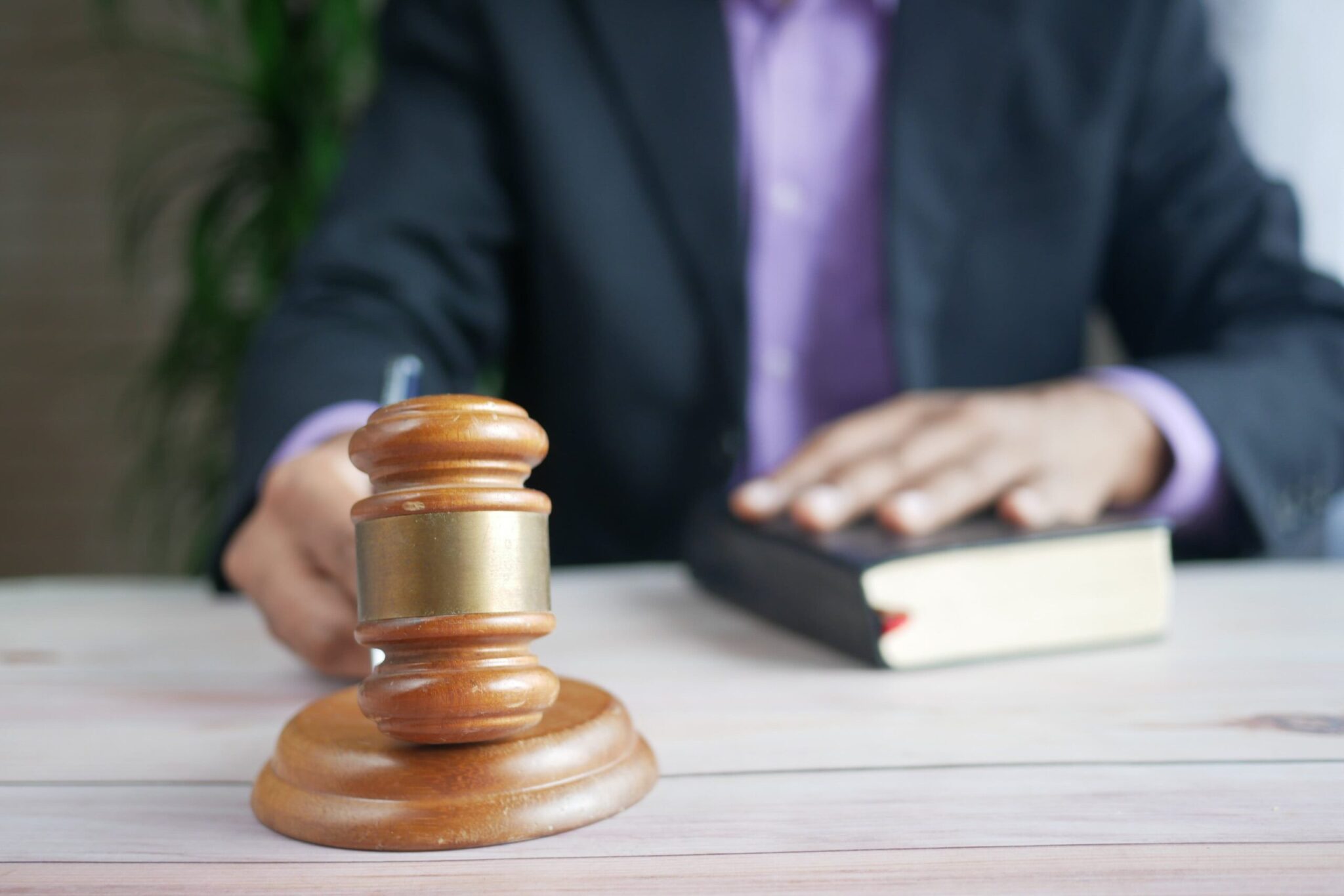
Medical treatment should enhance our well-being, not inflict additional damage. Nevertheless, there are instances where healthcare providers commit errors that result in severe outcomes. If you think you have experienced medical malpractice, you might be thinking about taking legal steps.
Medical malpractice lawsuits occur when a healthcare provider such as a doctor or nurse causes harm to a patient by not following the standard of care. This can happen due to wrong diagnosis, errors in medication, surgical failures, or insufficient postoperative care. Although the choice to move forward with a legal case is individual, having knowledge of the procedures can be empowering. This blog will guide you through the process of a medical malpractice lawsuit, starting from the first meeting with a lawyer to the ultimate result. It is crucial to keep in mind that a seasoned medical malpractice lawyer can serve as your most powerful supporter during this intricate procedure.
Recognizing Signs of Malpractice
Recognizing possible malpractice scenarios is the first essential step in moving forward with a legal case.
Understanding When to Consider Legal Action
Malpractice happens when a healthcare provider’s behavior strays from the expected level of care, resulting in damage or injury. Possible signs could consist of incorrect diagnosis, mistakes during surgery, or negligence in obtaining informed consent. If you think there is malpractice, it’s crucial to think about taking legal steps.
Documenting Evidence of Malpractice
Good documentation is crucial in cases of malpractice. Keep medical records, correspondence, and any evidence supporting negligence or misconduct. Thorough documentation greatly bolsters your argument.
Consultation with Legal Professionals
Getting legal advice at the beginning is crucial for a successful malpractice case. Seeking advice early in the process can make a significant difference in the outcome of your case by ensuring it is handled correctly from the beginning.
Importance of Seeking Legal Advice Early
It is important to consult a malpractice attorney promptly if you suspect malpractice. Time is important, and acting quickly can help ensure your case meets legal time constraints. Intervening in the legal process early can also assist in preserving evidence, identifying witnesses, and avoiding potential tampering or loss of important information. Furthermore, having knowledge of your legal rights and options from the beginning can give you a competitive edge in constructing a solid case.
Selecting the Right Malpractice Attorney
Selecting the correct lawyer is a crucial choice. Search for an attorney who has a lot of experience with malpractice cases, a proven history of winning, and a dedication to advocating for the rights of those who have been harmed. A lawyer who specializes in malpractice law will possess the expertise and resources needed to handle the intricacies of these cases. They must have outstanding communication abilities and a caring manner to make sure you feel supported and well-informed during the procedure.
Initial Consultation and Case Evaluation
In the first meeting, the lawyer will evaluate the strengths of your case. This includes examining medical files, comprehending the situation, and assessing the viability of the potential legal claim. The attorney will inquire about the incident in depth, collect relevant data, and possibly seek advice from medical professionals to evaluate the potential for a legitimate claim. This detailed assessment assists in creating a customized legal plan based on your unique circumstances, laying the groundwork for a strong case.
Case Evaluation and Feasibility
A comprehensive assessment is necessary before pursuing a malpractice lawsuit to verify its potential success.
In-Depth Analysis of the Malpractice Case
Legal professionals thoroughly analyze by reviewing medical records, consulting experts, and investigating the details of the alleged malpractice. This thorough examination assists in grasping the complexities of the situation.
Assessing the Strength of the Evidence
The importance of the evidence plays a key role in deciding the viability of a malpractice lawsuit. A successful outcome depends on strong evidence that proves a medical professional’s negligence or misconduct. This encompasses thorough medical records, professional assessments, and any relevant information to support the claim.
Determining the Feasibility of Pursuing a Lawsuit
Following an examination of the situation and considering the evidence’s validity, the lawyer reviews the possibility of moving forward with a legal action. This includes taking into account different aspects like the possible recoverable damages, the expenses of legal action, and the chances of a positive result. The choice to move forward is made by carefully weighing these factors to guarantee the most favorable outcome for the client.
Pre-filing Considerations
In order to provide a solid basis for your case, there are a few crucial factors to take into account before formally initiating legal action.
Statutes of Limitations and Filing Deadlines
It’s important to comprehend statutes of limitations. These are the deadlines set by law for filing a malpractice case. It is imperative that you are aware of and follow these dates because failing to do so may prevent you from pursuing compensation. Since each state has its own unique statute of limitations, it is imperative that you speak with an attorney as soon as possible to prevent losing your ability to pursue a claim.
Gathering Necessary Documentation and Records
Gathering the required papers and data is a painstaking procedure that builds the foundation of your case. Obtaining medical records, insurance policies, pictures, letters, and any other pertinent information related to the occurrence are all included in this. Thorough documentation can greatly strengthen your case by offering convincing evidence of the incidents that took place and the severity of your injuries or damages.
Communication with the Potential Defendant
Before filing a lawsuit, it could be prudent in some circumstances to speak with the possible defendant. This can entail discussing a settlement with them or informing them that you intend to take legal action. In certain cases, early dialogue might result in a settlement that avoids the need for drawn-out legal proceedings, saving both parties time and money.
To make sure your interests are sufficiently safeguarded, you should, therefore, approach this thoughtfully and frequently with the help of an expert lawyer.
Filing the Malpractice Lawsuit
Initiating the formal legal process involves specific steps that must be followed carefully.
Preparing and Submitting the Complaint
The complaint is a legal document outlining the details of the malpractice claim. It identifies the parties involved, alleges the specific acts of malpractice, and specifies the damages sought.
Court Procedures and Filing Requirements
Each court has its procedures and filing requirements. Adhering to these rules ensures that the lawsuit is properly filed and can proceed.
Serving Notice to the Defendant
Once the complaint is filed, notice must be served to the defendant, informing them of the legal action. This is typically done through a process server or certified mail.
Discovery Process
The discovery process is a critical phase in legal proceedings, involving the systematic gathering of information and evidence to build a strong case.
Exchange of Information Between Parties
During discovery, both parties exchange relevant information for the case. They share documents, witness statements, and any other evidence that may be used in court. The goal is to ensure that both sides have access to the facts and can prepare their arguments effectively.
Interrogatories, Depositions, and Document Requests
Interrogatories are a key component of discovery. These are written questions that each party must answer under oath, providing detailed information about the case. Depositions are another essential element, involving sworn statements made by parties and witnesses, usually in the presence of attorneys. The court records these statements, which attorneys can use later. Attorneys make formal document requests to the opposing party, ensuring they disclose all relevant information.
Building a Strong Case Through Discovery
Discovery is crucial for building a strong case. The information obtained during this process will shape the arguments and strategies presented in court. By thoroughly investigating and gathering evidence, attorneys can identify strengths and weaknesses in their case and the opposing party’s case, ultimately leading to more informed and effective legal representation.
Negotiation and Settlement
Exploring settlement options is a common occurrence in malpractice lawsuits.
Exploring Settlement Options
Before going to trial, parties may engage in settlement negotiations. This can lead to an agreement where the defendant offers compensation in exchange for dropping the lawsuit.
Negotiation Strategies and Tactics
Negotiating a fair settlement requires effective strategies and tactics. An experienced malpractice attorney will skillfully navigate these negotiations on behalf of the injured party.
Drafting and Finalizing Settlement Agreements
Once an agreement is reached, a formal settlement agreement is drafted and finalized. This document outlines the terms of the settlement, including the amount of compensation and any other relevant conditions.
Trial Preparation
In the event that a settlement cannot be reached, the case proceeds to trial.

Finalizing the Case Strategy
As trial day draws near, attorneys actively solidify their case strategy, meticulously outlining key arguments, handpicking witnesses, and organizing exhibits for presentation.
Mock Trials and Trial Simulations
In anticipation of potential challenges, some legal teams engage in mock trials or trial simulations to sharpen their presentation tactics and anticipate potential hurdles.
Preparing for Court Procedures and Proceedings
In readiness for the intricacies of court proceedings, attorneys and their clients diligently ready themselves, rigorously preparing for tasks such as presenting evidence, examining witnesses, and tactically addressing the opposing party’s assertions.
The Trial Process
The trial presents the culmination of the legal process, wherein the legal team presents the case before a judge and/or jury.
Opening Statements, Presentation of Evidence, and Cross-Examination
At the onset, both sides deliver opening statements, setting the stage for the proceedings.
Following the opening statements, both parties present evidence, and attorneys examine and cross-examine witnesses, elucidating or challenging the case’s facts with clarity and precision.
Closing Arguments
Advocates for each party then deliver compelling closing arguments, succinctly encapsulating their case’s essence while endeavoring to sway the judge or jury decisively in their favor.
Jury Deliberation and Verdict
In cases involving a jury, deliberation follows, during which jurors meticulously analyze the evidence before arriving at a verdict. Conversely, if a jury is absent, the judge, relying on the presented evidence and arguments, pronounces a ruling. Thus, the trial concludes, marking a pivotal moment in the pursuit of justice.
Post-Trial Procedures
Several important procedures follow after reaching a verdict.
Enforcement of Judgments
If the court awards damages to the plaintiff, there may be a process to enforce the judgment and ensure the defendant complies with the court’s decision.
Appeals Process and Considerations
Either party may choose to appeal the court’s decision if they believe there are legal errors that warrant review by a higher court.
Closure and Resolution of the Malpractice Lawsuit
The conclusion of the trial and any subsequent appeals brings closure to the malpractice lawsuit. The resolution may involve the payment of damages, changes in policies or procedures, or other remedies.
Call Jimenez Mazzitelli Mordes – Law Firm today!
In recapitulation, navigating a malpractice lawsuit requires a systematic approach and a deep understanding of the legal process. Each stage, from recognizing signs of malpractice to post-trial procedures, plays a crucial role in seeking justice for those who have suffered harm due to professional negligence. It’s important to emphasize the significance of professional legal guidance throughout this process.
Are you facing the complexities of a malpractice lawsuit? For assistance in navigating this challenging journey, contact JIMENEZ MAZZITELLI MORDES – LAW FIRM MIAMI, FLORIDA. Our dedicated team is ready to provide the support and guidance you need.
Contact Us
Free Consultations
No Fees or Costs Unless we Win your Personal Injury Case!



